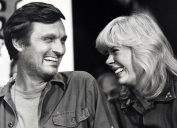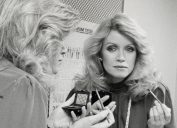He Played B.J. Hunnicutt on "MASH." See Mike Farrell Now at 83.
The actor is also a producer, author, and tireless activist.
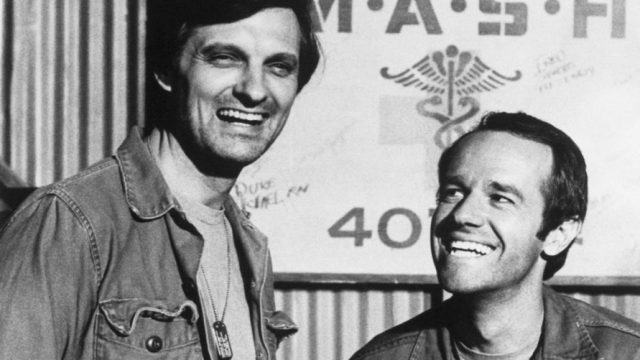
Mike Farrell joined the cast of the hit Korean War dramedy MASH in 1975 as the clean-cut family man Captain B.J. Hunnicutt and would go on to write five episodes and direct four before the series' record-setting finale in 1983. Today, he describes joining the cast as a mid-series replacement for "Trapper" John McIntyre (Wayne Rogers) as "a dream come true," and he recently reunited with co-star Alan Alda to toast the show's 50th anniversary. The decades in between have taken Farrell on a mission across the globe, into new series, and through a decades-long love. Read on to learn about his life after MASH and to see where he is now at age 83.
READ THIS NEXT: He Played Gonzo on Trapper John, M.D. See Gregory Harrison Now at 72.
He helped perform real-life surgery on a detained guerrilla leader.
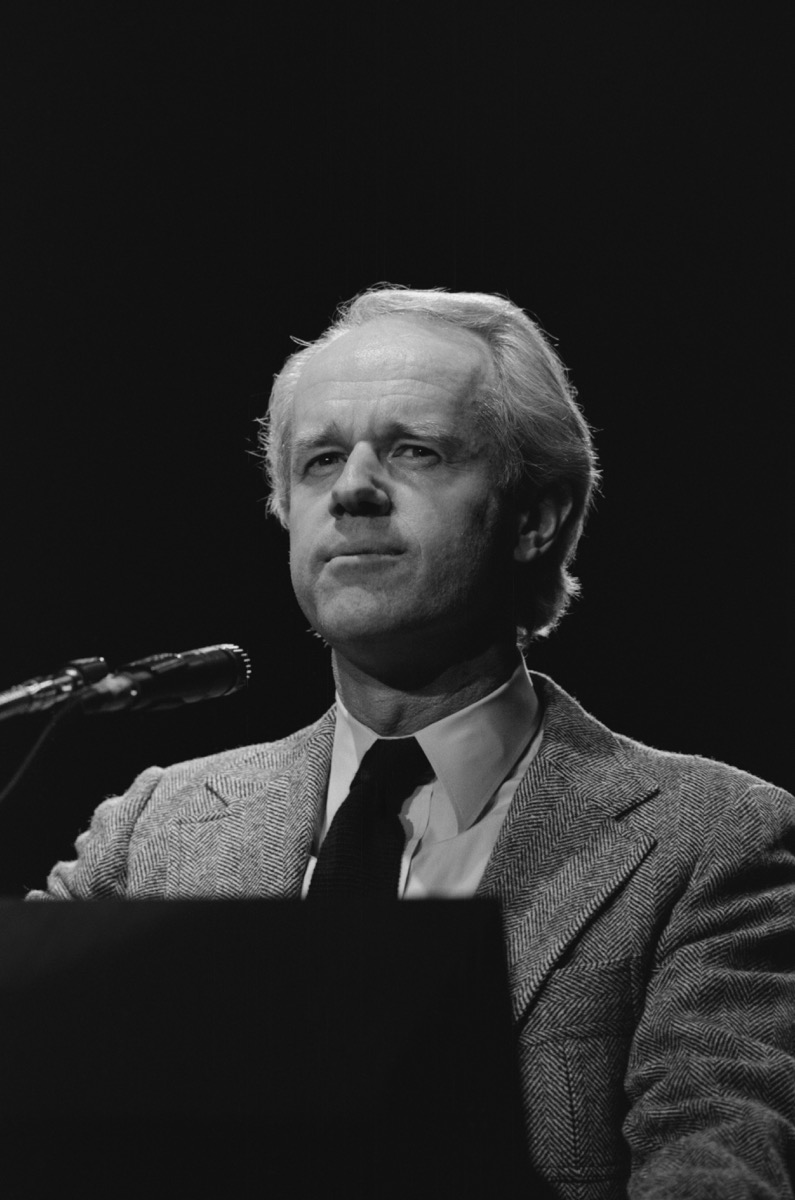
While still on MASH, Farrell was contacted by an affiliate of a small overseas refugee aid organization called CONCERN. Inspired by an episode in which Hunnicutt helps a group of refugee children, the organization wanted to see if he could help promote a documentary on refugee children in Asia, according to his 2009 autobiography Just Call Me Mike: A Journey to Actor and Activist. Farrell agreed to help and would soon join CONCERN's delegations to Cambodia, Honduras, El Salvador, and Nicaragua as a witness to the era's human rights crises. He subsequently became spokesperson for Concern America, the newly formed U.S. branch, speaking out about U.S. support of military regimes in Central America and testifying about the horrors of the civil war in El Salvador and issues with Reagan administration policies before the U.S. House of Representatives.
This involvement led to Farrell being asked in 1985 to accompany a medical mission to perform an operation on the captured and wounded Salvadoran guerilla commander Nidia Díaz. Attending as an observer for Amnesty International, he ultimately ended up assisting in the surgery when local surgical aides found involvement too risky. Noting that the incident sounded like a stunt—but most definitely was not—Farrell described his unexpected experience aside a neurosurgeon to The Los Angeles Times: "He said, 'When I say cut, I want you to cut. When I say retract, you retract. You know how to do that?' He gave me a book on tendon surgery in the car on the way over." (As for the patient, Díaz was later a part of negotiations between the insurgency and the government and a signatory of the Chapultepec Peace Accords that ended the Salvadoran Civil War.)
He authored a bill to abolish the death penalty and had a human rights award named after him.
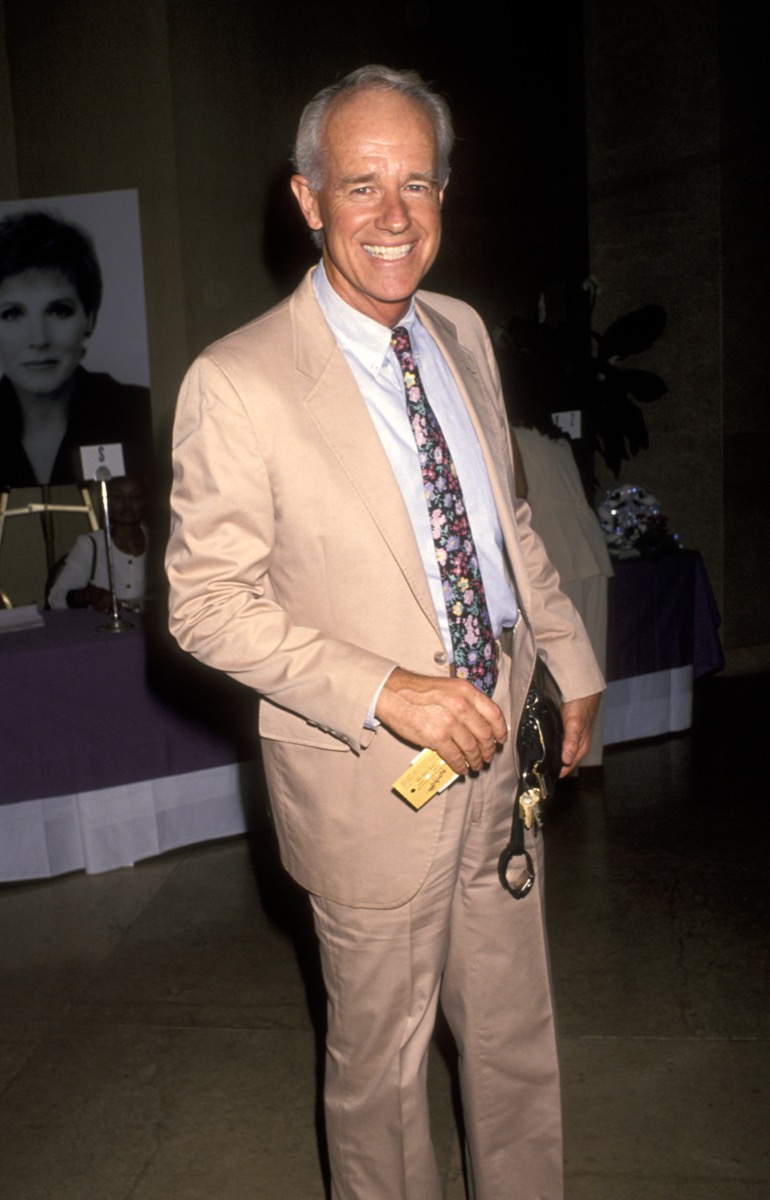
Farrell's activism didn't end with Latin America. He continued to travel internationally to observe and speak out about other humanitarian crises in the decades that followed. (Chronicles of his experiences in Somalia, Bosnia, Rwanda and other destinations can be found in the Journals section of his website.) He went on to serve as co-chair of the California Committee of Human Rights Watch for a decade and was named a Goodwill Ambassador for the United Nations High Commissioner for Refugees. Prior to the invasion of Iraq, he co-founded Artists to Win Without War, an organization that organized celebrities to speak out against the Iraq War. He also served on California's Commission on Judicial Performance, spent three years as first vice president of the Screen Actors Guild, and has written for Truthdig, HuffPost, and other publications on a variety of human rights issues.
A longtime death penalty abolitionist and proponent of prison reform, Farrell is president of the board of Death Penalty Focus and was the inaugural recipient of its Human Rights Award, which was subsequently named for him and "honors courageous and inspirational leaders who, in the spirit of Mike's vision and activism, strive for freedom, justice and peace throughout the world." He was also a member of the advisory board of the National Coalition to Abolish the Death Penalty and has spoken out about the death penalty across the country and for the ACLU.
In 2015, Farrell authored the ballot title and summary for what would become California's Proposition 62, the Justice That Works Act of 2016. The measure aimed to repeal the death penalty, replace it with a strict life sentence without parole, and increase the percentage of prisoner wages that went to pay debts to victims. Following an "advertising blitz" by the California Correctional Peace Officers Association, the proposition was narrowly rejected, while another death penalty-related measure that aimed to speed the process of capital trials and executions passed with 51 percent approval.
He married actor and singer Shelley Fabares.
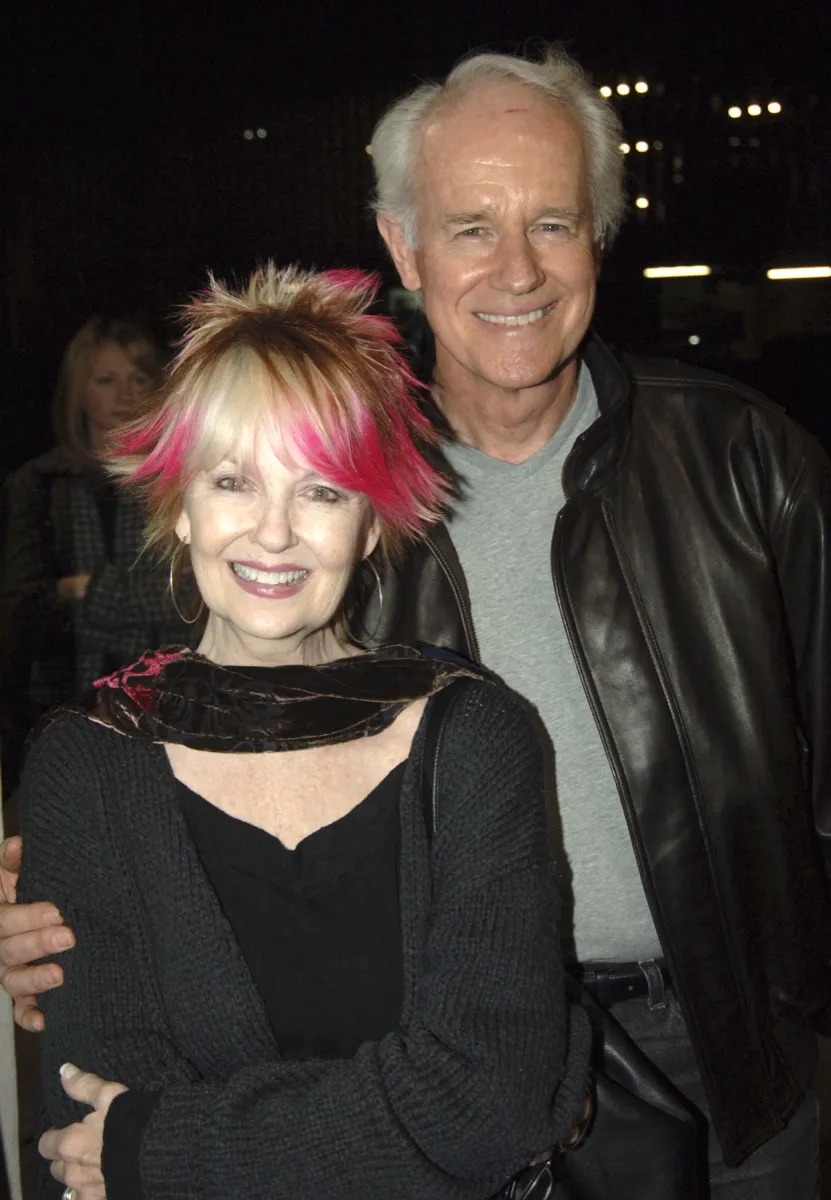
In 1970, Farrell met The Donna Reed Show actor and "Johnny Angel" singer Shelley Fabares when she guest-starred on his short-lived show The Interns. At the time, Farrell was married to his first wife Judy Hayden (who would later play Nurse Able on eight episodes of MASH), while Fabares was wed to music producer Lou Adler. They met again shortly before Farrell's divorce in 1983 and were married on December 31, 1984. Now together for more than 37 years, they have weathered co-parenting Farrell's two children with Hayden, the death of Fabares' mother of Alzheimer's disease, and Fabares' diagnosis of autoimmune hepatitis and liver transplant in 2000.
For more celebrity updates sent right to your inbox, sign up for our daily newsletter.
He brought Patch Adams to the big screen.
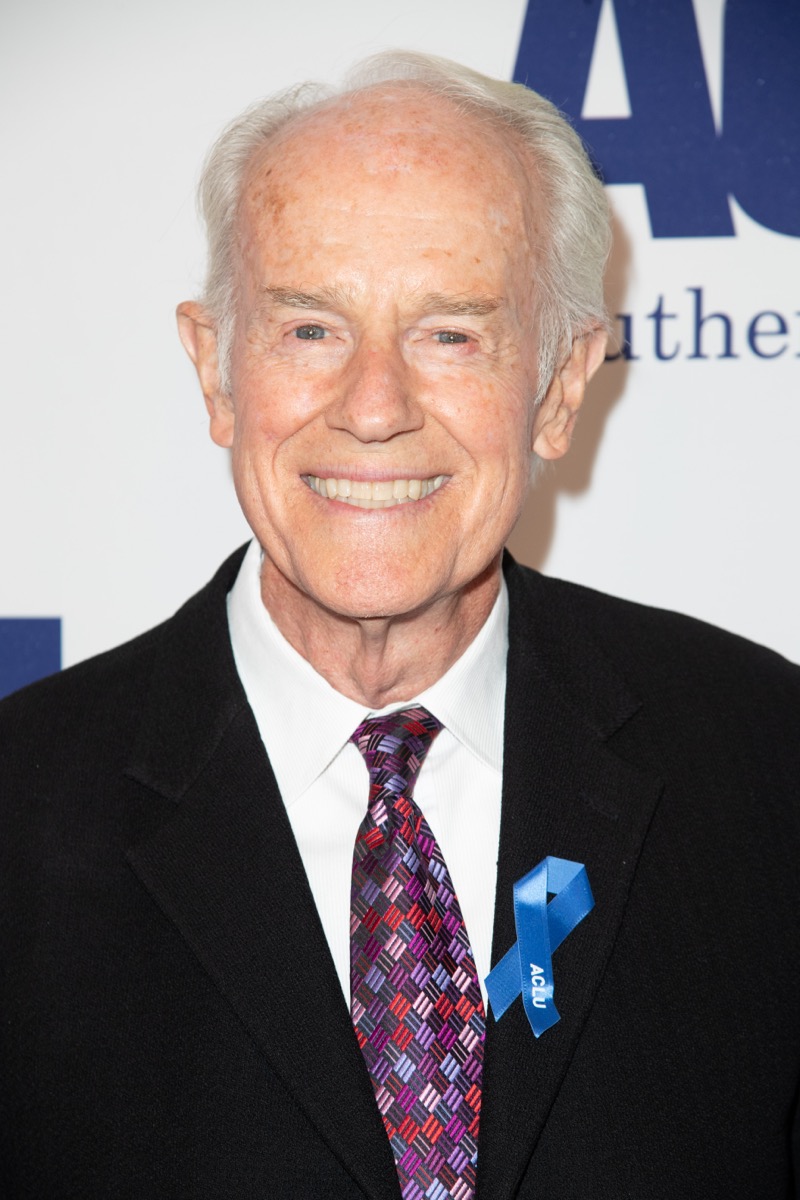
In 1985, Farrell and Nixon Interviews producer Marvin Minoff formed Farrell/Minoff Productions. Together, they signed a production deal with Walt Disney and produced several television movies throughout the late 1980s and early '90s. They also produced the film Dominick and Eugene starring Tom Hulce, Ray Liotta, and Jamie Lee Curtis. However, their best-known work arose from a fellow traveler Farrell befriended on a diplomacy trip to the former U.S.S.R., a clown-suited doctor Farrell remembers giving red rubber noses to Soviet soldiers. When Hunter "Patch" Adams, M.D. contacted Farrell a few years later after having written a book, the producer helped turn his life story (or at least a heavily commercialized version of it) into the Universal Pictures hit Patch Adams, starring Robin Williams.
He starred in a slew of TV movies before finding a series he couldn't resist.
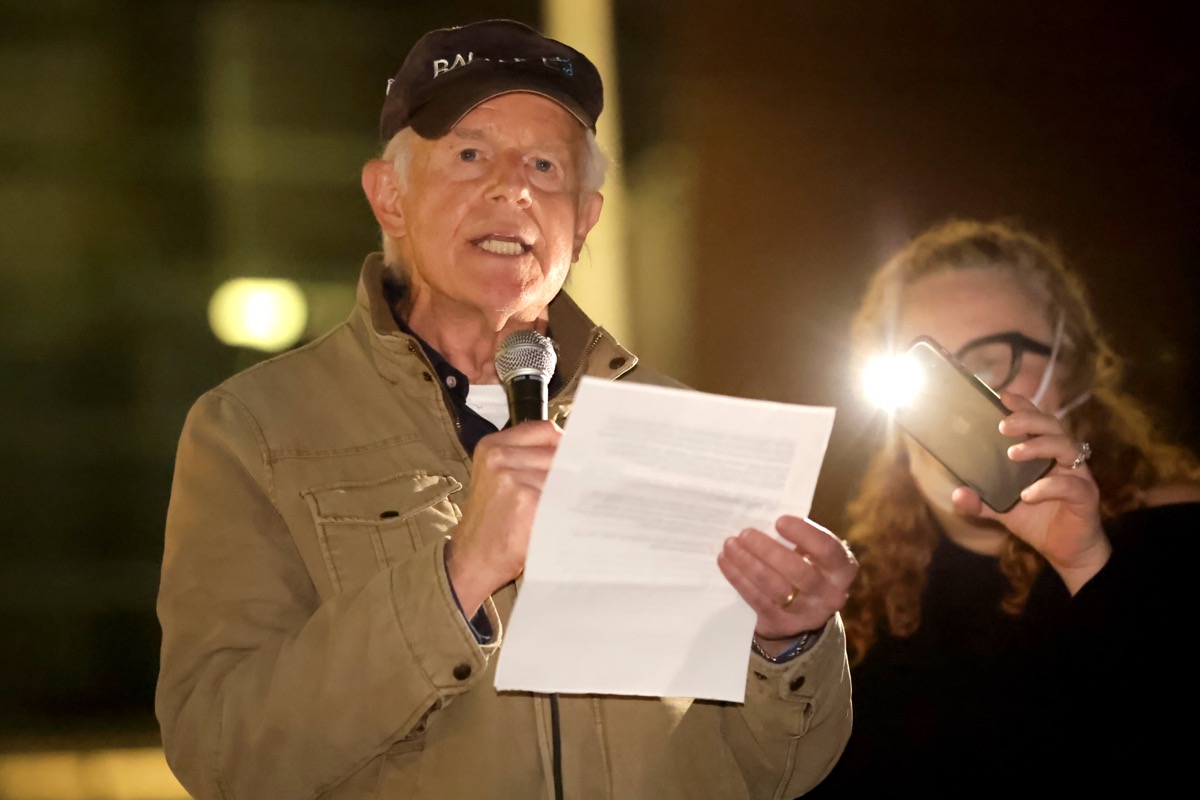
Alongside producing, tireless activism, extensive travels, and family life, Farrell also managed to fit in dozens of film and television credits in the years after MASH ended, focusing on a slew of television movies across the '80s and '90s, including the El Salvador-set Choices of the Heart, Memorial Day (which he also produced while co-starring with Fabares), and J.F.K.: A One-Man Show. He also had a guest spot on his wife's hit '90s sitcom Coach and became the voice of Jonathan Kent in Superman: The Animated Series and other shows. However, he would resist becoming part of the cast of another series until 1999, when he joined Providence, playing veterinarian Jim Hansen, thanks to a script that was so good he "couldn't turn it down." Since the show's 2002 cancellation, the actor has been a part of the short-lived SundanceTV series The Red Road and had occasional recurring roles including Desperate Housewives' Milton Lang, Andrew Cunanan victim Lee Miglin in American Crime Story, and his most recent: Judge Miles Deakin, the leader of a vigilante justice network, in two 2019 episodes of NCIS.
